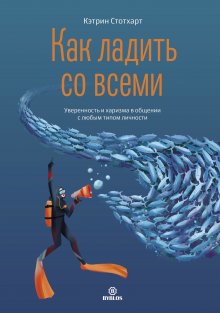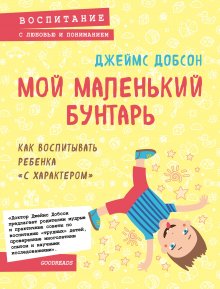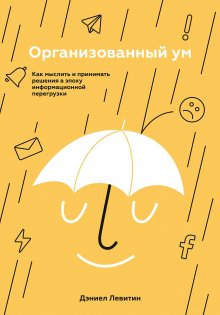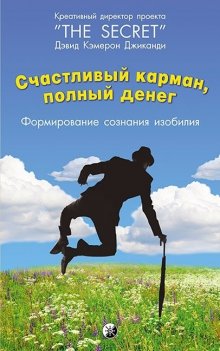Адам Алтер - Не оторваться. Почему наш мозг любит всё новое и так ли это хорошо в эпоху интернета

Все авторские права соблюдены. Напишите нам, если Вы не согласны.
Описание книги "Не оторваться. Почему наш мозг любит всё новое и так ли это хорошо в эпоху интернета"
Описание и краткое содержание "Не оторваться. Почему наш мозг любит всё новое и так ли это хорошо в эпоху интернета" читать бесплатно онлайн.
10
См.: A. L. S. King and others, «Nomophobia: Dependency on Virtual Environments or Social Phobia?», Computers in Human Behaviors 29, no. 1 (январь 2013): 140–44; A. L. S. King, A. M. Valença, and A. E. Nardi, «Nomophobia: The Mobile Phone in Panic Disorder with Agoraphobia: Reducing Phobias or Worsening of Dependence?», Cognitive and Behavioral Neurology 23, no. 1 (2010): 52–54; James A. Roberts, Luc Honore Petnji Yaya, and Chris Manolis, «The Invisible Addiction: Cell-Phone Activities and Addiction Among Male and Female College Students», Journal of Behavioral Addictions 3, no. 4 (December 2014): 254–65; Andrew Lepp, Jacob E. Barkley, and Aryn C. Karpinski, «The Relationship between Cell Phone Use, Academic Performance, Anxiety, and Satisfaction with Life in College Students», Computers in Human Behavior 31 (февраль 2014) 343–50; Shari P. Walsh, Katherine M. White, Ross McD. Young, «Needing to Connect: The Effect of Self and Others on Young People’s Involvement with Their Mobile Phones», Australian Journal of Psychology 62, no. 4 (2010): 194–203.
11
Andrew K. Przybylski and Netta Weinstein, «Can You Connect with Me Now? How the Presence of Mobile Communication Technology Influences Face-to-Face Conversation Quality», Journal of Social and Personal Relationships 30, no. 3 (май 2013): 237–46.
12
Colin Lecher, «GameSci: What Is (Scientifically!) the Most Addictive Game Ever?», Popular Science, 27 марта 2013, www.popsci.com/gadgets/article/2013-03/gamesci-what-scientifically-most-addictive-game-ever; дискуссионный блог WoWaholics Anonymous, www.reddit.com/r/nowow/; тест на зависимость от WoW: www.helloquizzy.com/tests/the-new-and-improved-world-of-warcraft-addiction-test.
13
Ana Douglas, «Here Are the 10 Highest Grossing Video Games Ever», Business Insider, 13 июня 2012, www.businessinsider.com/here-are-the-top-10-highest-grossing-video-games-of-all-time-2012-6; Samit Sarkar, «Blizzard Reaches 100M Lifetime World of Warcraft Accounts», Polygon, 28 января 2014, www.polygon.com/2014/1/28/5354856/world-of-warcraft-100m-accounts-lifetime.
14
Jeremy Reimer, «Doctor Claims 40 Percent of World of Warcraft Players Are Addicted», Ars Technica, 9 августа 2006, arstechnica.com/uncategorized/2006/08/7459/.
15
Информация о центре reSTART: www.netaddictionrecovery.com/.
16
Jerome Kagan, «The Distribution of Attention in Infancy», in Perception and Its Disorders, eds. D. A. Hamburg, K. H. Pribram, and A. J. Stunkard, (Williams and Wilkins Company: Baltimore, MD, 1970), 214–37.
17
R. J. Vallerand and others, «Les passions de l’ame: On Obsessive and Harmonious Passion», Journal of Personality and Social Psychology 83 (2003): 756–67.
18
О взглядах Аллена Фрэнсиса см. Allen Frances, «Do We All Have Behavioral Addictions?», Huffington Post, 28 марта 2012, www.huffingtonpost.com/allen-frances/behavioral-addiction_b_1215967.html.
19
Steve Sussman, Nadra Lisha, and Mark D. Griffiths, «Prevalence of the Addictions: A Problem of the Majority or the Minority?», Evaluation and the Health Professions 34 (2011): 3–56.
20
Статистика взята из статьи Susan M. Snyder, Wen Li, Jennifer E. O’Brien, and Matthew O. Howard, «The Effect of U.S. University Students’ Problematic Internet Use on Family Relationships: A Mixed-methods Investigation», Plos One, 11 декабря 2015, journals.plos.org/plosone/article?id=10.1371/journal.pone.0144005.
21
Полный тест вы найдете здесь: netaddiction.com/Internetaddictiontest/.
22
Вся статистика взята из книги Rosenberg and Feder, Behavioral Addictions. См. также: Aaron Smith, «U.S. Smartphone Use in 2015», PewResearchCenter, 1 апреля 2015, www.pewInternet.org/2015/04/01/us-smartphone-use-in-2015/; Ericsson Consumer Lab, «TV and Media 2015: The Empowered TV and Media Consumer’s Influence», сентябрь 2015.
23
Kelly Wallace, «Half of Teens Think They’re Addicted to their Smartphones», CNN, 3 мая 2016, www.cnn.com/2016/05/03/health/teens-cell-phone-addiction-parents/index.html.
24
Kleiner Perkins Caulfield & Byers, «Internet Trends Report 2016», SlideShare, 26 мая 2015, www.slideshare.net/kleinerperkins/internet-trends-v1/14-14Internet_Usage_Engagement_Growth_Solid11.
25
Microsoft Canada, Consumer Insights, Attention Spans, Spring 2015, advertising.microsoft.com/en/WWDocs/User/display/cl/researchreport/31966/en/microsoft-attention-spans-research-report.pdf. С абсолютной уверенностью утверждать, что социальные сети вредят вниманию, невозможно. Можно лишь сказать, что люди, пользующиеся социальными сетями, в целом менее внимательны. Но в сочетании с другими выводами этого отчета такая связь вызывает тревогу.
26
Этимология слова «зависимость»: Oxford English Dictionary, 1989, www.oup.com; см. также Mark Peters, «The Word We’re Addicted To», CNN, 23 марта 2010, www.cnn.com/2011/LIVING/03/23/addicted.to.addiction/.
27
Гоминиды (лат. Hominidae) – семейство наиболее прогрессивных приматов, включающее людей и больших человекообразных обезьян. (Википедия. – Прим. ред.)
28
Justin R. Garcia and others, «Associations Between Dopamine D4 Receptor Gene Variation with Both Infidelity and Sexual Promiscuity», Plos One, 2010, journals.plos.org/plosone/article?id=10.1371/journal. pone.0014162; см. также: B. P. Zietsch and others, «Genetics and Environmental Influences on Risky Sexual Behaviour and Its Relationship with Personality», Behavioral Genetics 40, no. 1 (2010): 12–21; David Cesarini and others, «Genetic Variation in Financial Decision-making», The Journal of Finance 65, no. 5 (октябрь 2010): 1725–54; David Cesarini and others, «Genetic Variation in Preferences for Giving and Risk Taking», Quarterly Journal of Economics 124, no. 2 (2009): 809–42; Songfa Zhong and others, «The Heritability of Attitude Toward Economic Risk», Twin Research and Human Genetics 12, no. 1 (2009): 103–7.
29
См., например, Tammy Saah, «The Evolutionary Origins and Significance of Drug Addiction», Harm Reduction Journal 2, no 8 (2005), harmreductionjournal.biomedcentral.com/articles/10.1186/1477-7517-2-8.
30
История зависимостей: Jonathan Wynne-Jones, «Stone Age Man Took Drugs, Say Scientists», Telegraph, 19 октября 2008, www.telegraph.co.uk/news/newstopics/howaboutthat/3225729/Stone-Age-man-took-drugs-say-scientists.html; Marc-Antoine Crocq, «Historical and Cultural Aspects of Man’s Relationship with Addictive Drugs», Dialogues in Clinical Neuroscience 9, no. 4 (2007): 355–61; Tammy Saah, «The Evolutionary Origins and Significance of Drug Addiction», Harm Reduction Journal 2, no. 8 (2005) harmreductionjournal.biomedcentral.com/articles/10.1186/1477-7517-2-8; Nguyen Xuân Hien, «Betel-Chewing in Vietnam: Its Past and Current Importance», Anthropos 101 (2006): 499–516; Hilary Whiteman, «Nothing to Smile About: Asia’s Deadly Addiction to Betel Nuts», CNN, 5 ноября 2013, www.cnn.com/2013/11/04/world/asia/myanmar-betelnut-cancer.
31
22. David F. Musto, «America’s First Cocaine Epidemic», The Wilson Quarterly 13, no. 3 (лето 1989): 59–64; Curtis Marez, Drug Wars: The Political Economy of Narcotics, Minneapolis: University of Minnesota Press, 2004); Robert Christison, «Observations on the Effects of the Leaves of Erythroxylon Coca», British Medical Journal 1 (29 апреля 1876): 527–31.
32
О Фрейде и статье «О коке» см.: «Über Coca, by Sigmund Freud», scicurious, 28 мая, 2008, scicurious.wordpress.com/2008/05/28/uber-cocabysigmund-freud/; Sigmund Freud, “Über Coca” classics revisited, Journal of Substance Abuse and Treatment 1 (1984), 206–17; Howard Markel, An Anatomy of Addiction: Sigmund Freud, William Halsted, and the Miracle Drug, Cocaine (New York: Vintage 2012).
33
О Пембертоне и «кока-коле» см.: Bruce S. Schoenberg, «Coke’s the One: The Centennial of the ‘Ideal Brain Tonic’ That Became a Symbol of America», Southern Medical Journal 81, no. 1 (1988): 69–74; M. M. King, «Dr. John S. Pemberton: Originator of Coca-Cola», Pharmacy in History 29, no. 2 (1987): 85–89; Guy R. Hasegawa, «Pharmacy in the American Civil War», American Journal of Health-System Pharmacy 57, no. 5 (2000): 457–89; Richard Gardiner, «The Civil War Origin of Coca-Cola in Columbus, Georgia», Muscogiana: Journal of the Muscogee Genealogical Society 23 (2012): 21–24; Dominic Streatfeild, Cocaine: An Unauthorized Biography (London: Macmillan, 2003); Richard Davenport-Hines, The Pursuit of Oblivion: A Global History of Narcotics (New York: Norton, 2004).
34
Catherine Steiner-Adair, The Big Disconnect: Protecting Childhood and Family Relationships in the Digital Age (New York: Harper, 2013).
35
Chen Yu and Linda B. Smith. «The Social Origins of Sustained Attention in One-year-old Human Infants», Current Biology 26, no. 9 (May 9, 2016): 1235–40.
36
Indiana University, «Infant Attention Span Suffers When Parents’ Eyes Wander During Playtime: Eye-tracking Study First to Suggest Connection between Caregiver Focus and Key Cognitive Development Indicator in Infants», ScienceDaily, 8 апреля 2016, www.sciencedaily.com/releases/2016/04/160428131954.htm.
37
Nancy Jo Sales, American Girls: Social Media and the Secret Lives of Teenagers (New York: Knopf, 2016).
38
Jessica Contrera. «13, Right Now», Washington Post, 25 мая 2016, www.washingtonpost.com/sf/style/wp/2016/05/25/2016/05/25/13-right-now-this-is-what-its-like-to-grow-up-in-the-age-of-likes-lols-and-longing/.
39
О Донг Нгуене и Flappy Bird: значительная часть информации взята с загрузочной страницы Flappy Bird, которая более недоступна в сети. Другие источники: John Boudreau and Aaron Clark, «Flappy Bird Creator Dong Nguyen Offers Swing Copters Game», Bloomberg Technology, 22 августа, 2014, www.bloomberg.com/news/articles/2014-08-22/flappy-bird-creator-dong-nguyen-offers-swing-coptersgame; Laura Stampler, «Flappy Bird Creator Says ‘It’s Gone Forever’», Time, 11 февраля 2014, http://time.com/6217/flappy-bird-app-dong-nguyen-addictive/; James Hookway, «Flappy Bird Creator Pulled Game Because It Was ‘Too Addictive’», Wall Street Journal, 11 февраля, 2014, www.wsj.com/articles/SB10001424052702303874504579376323271110900; Lananh Nguyen, «Flappy Bird Creator Dong Nguyen Says App ‘Gone Forever’ Because It Was “An Addictive Product’», Forbes, 11 февраля 2014, www.forbes.com/sites/lananhnguyen/2014/02/11/exclusive-flappy-bird-creator-dong-nguyen-says-app-gone-forever-because-it-was-an-addictive-product/.
40
Kathryn Yung and others, «Internet Addiction Disorder and Problematic Use of Google Glass in Patient Treated at a Residential Substance Abuse Treatment Program», Addictive Behaviors 41 (2015): 58–60; James Eng, «Google Glass Addiction? Doctors Report First Case of Disorder», NBC News, 14 октября 2014, www.nbcnews.com/tech/Internet/google-glass-addiction-doctors-report-first-case-disorder-n225801.
41
1. Jason Massad, «Vietnam Veteran Recalls Firefights, Boredom and Beer», Reporter Newspapers, 4 ноября 2010, www.reporternewspapers.net/2010/11/04/vietnam-veteran-recalls-firefights-boredom-beer/.
42
О торговле героином в Золотом треугольнике во время Вьетнамской войны и реакции Никсона см.: Alfred W. McCoy, Cathleen B. Read, and Leonard P. Adams II, The Politics of Heroin in Southeast Asia (New York: Harper and Row, 1972); Tim O’Brien, The Things They Carried (New York: Houghton Mifflin Harcourt, 1990); Liz Ronk, «The War Within: Portraits of Vietnam War Veterans Fighting Heroin Addiction», Time, 20 января 2014, time.com/3878718/vietnam-veterans-heroin-addiction- treatmentphotos/; Aimee Groth, «This Vietnam Study about Heroin Reveals the Most Important Thing about Kicking Addictions», Business Insider, 3января, 2012, www.businessinsider.com/vietnam-study-addictions-2012-1; Dirk Hanson, «Heroin in Vietnam: The Robins Study», Addiction Inbox, 24 июля, 2010, addiction-dirkh.blogspot.com/2010/07/heroin-in-viet-nam-robins-study.html; Jeremy Kuzmarov, The Myth of the Addicted Army: Vietnam and the Modern War on Drugs (Amherst, MA: University of Massachusetts Press, 2009); Alix Spiegel, «What Vietnam Taught Us about Breaking Bad Habits», NPR, 2 января 2012, www.npr.org/sections/health-shots/2012/01/02/144431794/what-vietnam-taught-usabout-breaking-bad-habits; Alexander Cockburn and Jeffrey St. Clair, Whiteout: The CIA, Drugs, and the Press, (New York: Verso, 1997).
43
David Nutt, Leslie A. King, William Saulsbury, and Colin Blakemore, «Development of a Rational Scale to Assess the Harm of Drugs of Potential Misuse», Lancet 369, no. 9566 (март 2007): 1047–53.
44
Peter Brush, «Higher and Higher: American Drug Use in Vietnam», Vietnam Magazine, декабрь 2002, nintharticle.com/vietnam-drug-usage.htm; Alfred W. McCoy, Cathleen B. Read, and Leonard P. Adams II, The Politics of Heroin in Southeast Asia (New York: Harper and Row, 1972).
45
О Ли Робинс и ее исследованиях: Lee N. Robins, «Vietnam Veterans’ Rapid Recovery from Heroin Addiction: A Fluke or Normal Expectation?», Addiction 88, no. 8 (1993), 1041–54; Lee N. Robins, John E. Helzer, and Darlene H. Davis, «Narcotic Use in Southeast Asia and Afterward», Archives of General Psychiatry 32, no. 8 (1975): 955–961; Lee N. Robins and S. Slobodyan, «Post-Vietnam Heroin Use and Injection by Returning US Veterans: Clues to Preventing Injection Today», Addiction 98, no. 8 (2003): 1053–60; Lee N. Robins, Darlene H. Davis, and Donald W. Goodwin, «Drug Use by U.S. Army Enlisted Men in Vietnam: A Follow-up on Their Return Home», American Journal of Epidemiology 99, no. 4 (май 1974): 235–49; Lee N. Robins, The Vietnam Drug User Returns, final report, Special Action Office Monograph, Series A, Number 2, май 1974, prhome.defense.gov/Portals/52/Documents/RFM/Readiness/DDRP/docs/35%20Final%20Report.%20The%20Vietnam%20drug%20user%20returns.pdf; Lee N. Robins, John E. Helzer, Michie Hesselbrock, and Eric Wish, «Vietnam Veterans Three Years after Vietnam: How Our Study Changed Our View of Heroin», American Journal on Addictions 19, 203–11 (2010); Thomas H. Maugh II, «Lee N. Robins Dies at 87; Pioneer in Field of Psychiatric Epidemiology», Los Angeles Times, 6 октября 2009, www.latimes.com/nation/la-me-lee-robins6-2009oct06-story.html.
Подписывайтесь на наши страницы в социальных сетях.
Будьте в курсе последних книжных новинок, комментируйте, обсуждайте. Мы ждём Вас!
Похожие книги на "Не оторваться. Почему наш мозг любит всё новое и так ли это хорошо в эпоху интернета"
Книги похожие на "Не оторваться. Почему наш мозг любит всё новое и так ли это хорошо в эпоху интернета" читать онлайн или скачать бесплатно полные версии.
Мы рекомендуем Вам зарегистрироваться либо войти на сайт под своим именем.
Отзывы о "Адам Алтер - Не оторваться. Почему наш мозг любит всё новое и так ли это хорошо в эпоху интернета"
Отзывы читателей о книге "Не оторваться. Почему наш мозг любит всё новое и так ли это хорошо в эпоху интернета", комментарии и мнения людей о произведении.




















